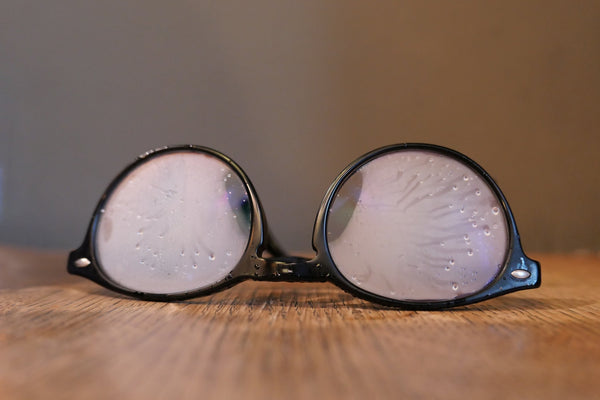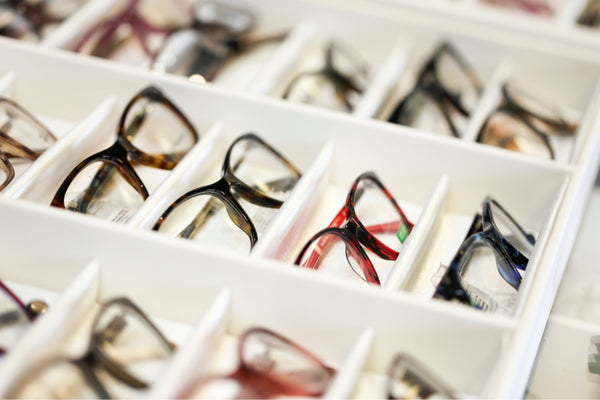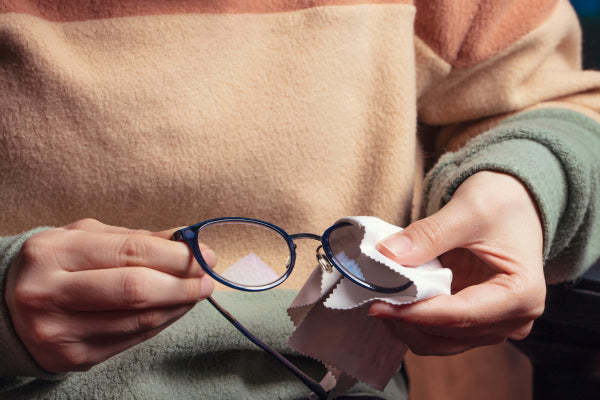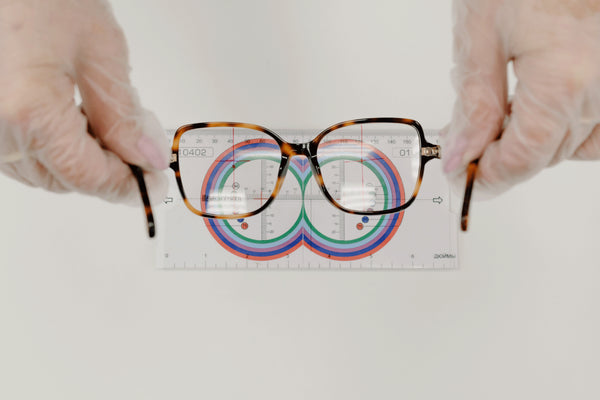How to stop glasses steaming up
A common problem for many glasses wearers is the lenses steaming up. During the summer months, fogged-up glasses are less of an issue but are much more prevalent during the cold winter months when the difference in indoor and outdoor temperatures causes condensation.
Steamed-up glasses lenses can be frustrating and inconvenient, so we’ve compiled a list of our top 8 tips to help prevent them from fogging.
Why do glasses fog up?
Typically, glasses fog up because of the temperature change from indoors to outdoors and vice versa. You may notice some people’s glasses fog up more easily than others and that’s because it can also depend on your own body temperature. For example, after exercise or a hot shower, when the moist air from your breath and around your head hits the cold lenses, they’ll fog up.
How to stop your glasses from fogging up: 8 tips
While steamed-up glasses are often inevitable as we, unfortunately, can’t control the weather, there are preventative measures you can take to help keep your glasses as clear as possible.
1. Let your glasses adjust to temperature changes
With the sudden temperature change from stepping into a warm room from the cold outdoors, your glasses will need some time to adjust. If possible, set them aside for a few moments to clear up. The same goes for going outside from indoors. If you can't see clearly without glasses and are unable to take them off, to prevent them from fogging up indoors, you could instead try to adjust the temperature inside, such as opening a window, so it isn't such a drastic change.
2. Ensure your glasses fit
Finding the right fit for your glasses can be tricky. If they’re too big or the sides are slightly crooked, they’ll be sliding down your nose every five minutes and constantly steam up from your warm breath.
3. Opt for anti-fog lenses
There are many different types of lenses to choose from, and if your glasses steaming up is a big concern, choosing anti-fog lenses will be a great option. These lenses have a unique coating that attracts and evenly distributes moisture across the lens surface, preventing water droplets from forming and obstructing vision.
4. Wear contact lenses when exercising
To avoid your glasses fogging up as your temperature rises while exercising, the most effective solution is to wear contact lenses instead. When deciding between contact lenses and glasses, keep in mind that contact lenses do not fog, and they’ll be more comfortable and convenient to wear while exercising.
5. Try anti-fog products
There are several anti-fog products available to try, including:
Anti-fog spray: This quick and easy solution creates a very thin film on your lenses to protect them from moisture. Simply spray the lenses directly and let them dry for a while before wearing them. Once dried, you can wear them out in the cold and enjoy clear-sighted vision.
Anti-fog wipes: these are perfect to use on the go. Simply use the wipe in a circular motion, let them dry and pop the glasses back on fog-free.
6. Watch out for hot drinks
As comforting as hot tea, coffee, or hot chocolate is in the winter, they are notorious for fogging glasses. The warmth released from the cup as you take a sip will instantly steam up your glasses. Luckily, putting a lid on the cup will prevent fogging from happening.
7. Keep your lenses clean
It’s important to keep your lenses clean as dirt, grease and dust on your glasses will allow the fog to accumulate, making the situation worse and even harder to see out of. We suggest cleaning your glasses at least once every day and then storing them properly when you’re not using them. When they do steam up, wipe them with a silky lens cleaning cloth to prevent them from becoming smeary. It’s also wise not to touch the lenses with your bare hands as this could transfer oils from your skin and any skin products you may have used, such as moisturiser or hand cream, making them cloudy.
8. Make sure your face mask is not too big
If you’re wearing glasses with a face mask, make sure the mask is well-fitted and not too big to stop your breath from escaping through the top of the mask and fogging up your glasses. Try to also leave a gap between the face mask and your nose to allow the heat to escape without reaching your glasses.
Avoid home remedies that can damage your lenses
While information online may advise you to try home remedies, such as washing your glasses with soap or using shaving cream, as a way to create a barrier, we strongly recommend against using these methods, as you could risk damaging your lenses and needing to buy replacements.
Book your eye test today
Find a Leightons branch near you
Learn more










